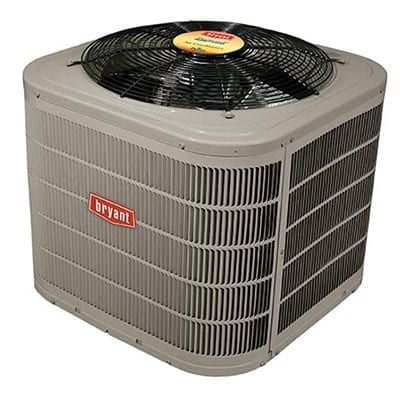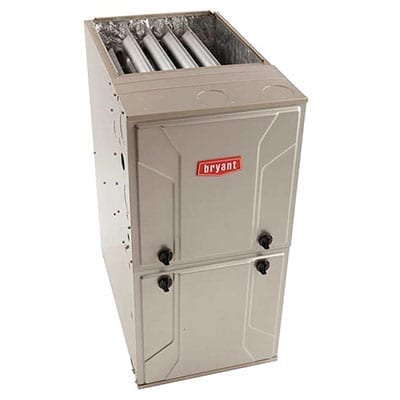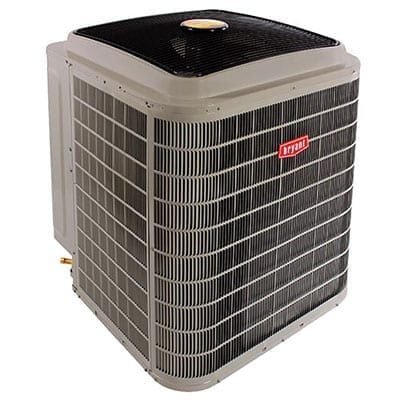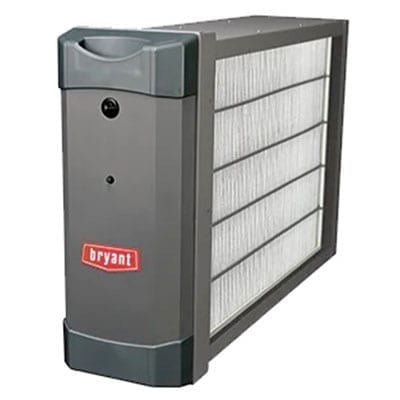Commercial HVAC for Aquarium Shops
Commercial HVAC systems are indispensable for maintaining optimal conditions in aquarium shops, especially in areas with fish tanks, fish rooms, and reef tanks. These systems help regulate temperature, humidity, and air quality, preventing issues such as excessive moisture that can be harmful to the fish and corals. A dehumidifier is often used in conjunction with the HVAC system to control humidity levels and prevent condensation buildup in the fish room. These aquarium systems not only regulate temperature in the fish tank but also ensure adequate ventilation and air quality in the aquarium room, crucial for the comfort and well-being of aquatic life. It is important to have the right aquarium supplies in place in your fish room to maintain a healthy environment for your fish. The proper functioning of HVAC systems, including dehumidification and the use of a dehumidifier, is pivotal in creating a pleasant environment for both customers and employees alike. These systems help regulate the outdoor air and remove humid air, ensuring a comfortable atmosphere. Shop owners understand the significance of efficient ventilation, fans, and other HVAC supplies in maintaining a thriving aquarium room and fish room while providing a comfortable space for patrons to enjoy. The use of a dehumidifier helps regulate moisture levels, while outdoor air circulation promotes a healthy environment for the aquatic ecosystem.
Significance of HVAC Systems in Aquatic Retail
Temperature and Humidity Control
Commercial HVAC systems are essential for maintaining the optimal temperature and humidity levels in an aquarium room or fish room. These systems ensure the well-being of aquatic species by regulating the environment. Additionally, using a dehumidifier in conjunction with the HVAC system can help control moisture levels and prevent damage to aquarium supplies. For instance, in an aquarium room, tropical fish need warm water while cold-water species require cooler temperatures. This is why having the right aquarium supplies, such as a heater or chiller, is important for maintaining the ideal tank conditions for your coral and other fish. The HVAC system in the aquarium room ensures that the specific needs of the fish room are met, creating a comfortable environment for the aquatic life. The dehumidifier helps maintain fresh air in the room.
The controlled temperature in the fish room also prevents extreme fluctuations that can stress or even be fatal to certain species in the aquarium room. Using a dehumidifier in the tank helps maintain the optimal conditions for the fish. Maintaining proper humidity levels in a fish room or basement is vital, as it helps prevent excessive moisture that could lead to mold growth or condensation within the tank. Using a dehumidifier can be beneficial for controlling humidity in these areas.
Proper air circulation facilitated by the HVAC system in the aquarium room aids in preventing stagnant air pockets where harmful bacteria can thrive, ensuring a healthy environment for both fish and customers. A dehumidifier is also used to maintain optimal humidity levels in the tank.
Air Quality Maintenance
Aside from regulating temperature and humidity, commercial HVAC systems are essential for preserving high-quality air within aquarium shops. This is especially important in a fish room or tank where a dehumidifier is needed to maintain the ideal conditions. Whether it’s in a house or a commercial space, having the right HVAC system is crucial for the health and well-being of the aquatic life. By effectively filtering out dust particles, allergens, and other contaminants from the air, dehumidifiers contribute to creating a clean and healthy atmosphere in the house. These systems are especially beneficial in an aquarium room, where maintaining the right humidity levels is crucial for the well-being of the tank and its inhabitants.
The filtration process in the aquarium room removes airborne pathogens that could potentially cause diseases among fish in the tank. A dehumidifier helps maintain the optimal conditions for the fish room. This is particularly important in a fish room or basement of a house, as crowded tanks in an aquarium shop pose an increased risk of disease transmission between different species if not properly managed through efficient ventilation provided by HVAC systems and the use of a dehumidifier.
Furthermore, maintaining good indoor air quality in the basement enhances the overall shopping experience for customers by providing them with fresh and clean air while they browse through various displays of marine life without being exposed to unpleasant odors or stuffiness often associated with enclosed spaces like aquarium shops. Using a dehumidifier in the room helps to remove excess moisture from the air and collects it in a tank.
Custom HVAC Solutions for Indoor Aquatic Facilities
Tailored HVAC Solutions
Indoor aquatic facilities, such as aquarium shops, have unique requirements that demand customized HVAC solutions. These facilities often require the use of a dehumidifier to control the humidity levels in the room. The dehumidifier helps maintain a comfortable and healthy environment for the aquatic life in the tanks. This is especially important for basement aquarium shops, where moisture can easily build up and cause damage. These dehumidifier systems are specifically designed for the distinct needs of an indoor aquarium room. For instance, a commercial HVAC system with a dehumidifier for an indoor aquarium shop must be able to regulate temperature and humidity levels effectively in the tank room and basement to ensure the well-being of marine life. These custom solutions also focus on maintaining optimal air quality within the aquarium room, basement facility, by using a dehumidifier.
Customized HVAC solutions cater to the specific demands of different types of aquatic environments found in indoor facilities, such as aquarium rooms in basements. A dehumidifier may be necessary to regulate the moisture levels in these spaces. Whether it’s a large saltwater tank or a freshwater ecosystem with delicate plant life, each type requires tailored heating, ventilation, and air conditioning systems for the room or basement. By understanding the diverse needs of various aquatic setups, HVAC professionals can design and implement systems that effectively address the specific requirements of each room.
Effective Regulation
One key aspect where customized HVAC solutions excel is in their ability to regulate temperature effectively within indoor aquariums. These systems ensure optimal conditions for the aquatic life in the room. For example, in larger facilities with substantial water volumes and diverse marine life, precision control over both air and water temperatures in the room is crucial. This ensures that the room environment remains stable and conducive for all inhabitants within the aquarium shop.
Moreover, these tailored solutions also play a vital role in managing humidity levels within a indoor aquatic facility room. The unique environmental conditions required by certain species of fish or plants necessitate precise control over humidity levels in the room. With customized HVAC solutions, it becomes possible to maintain an ideal balance between moisture content in the air without causing any adverse effects on sensitive marine ecosystems in a room.
Optimizing Heat and Humidity in Large Aquariums
Specialized HVAC Systems
Large aquariums, such as those found in commercial aquarium shops, require specialized HVAC systems to effectively manage the heat generated by lighting and equipment in the room. These systems play a crucial role in maintaining optimal temperature levels for the aquatic life within the tanks in the room. Without proper regulation, excessive heat in a marine room can lead to stress or even fatalities among the marine inhabitants.
Advanced HVAC technologies are essential for achieving precise control over both temperature and humidity levels within these expansive aquatic environments. These technologies ensure optimal conditions in the room. For instance, sophisticated dehumidification solutions are utilized to prevent condensation in the room on tanks, which could prove detrimental to the health of the fish and other marine organisms residing within them.
Efficient management of the heating and cooling system is crucial for maintaining a stable environment in the room, which is essential for promoting the health of aquatic life. Maintaining optimal conditions for large-scale aquariums in a room requires an integrated approach that considers factors such as air circulation, exhaust systems, and outside air exchange.
Importance of Humidity Control
Controlling humidity levels is paramount. Excessive humidity in a room can result in undesirable outcomes such as condensation on tank surfaces or elevated moisture content in the air surrounding the fish tanks.
To address the issue of high humidity in a room, advanced dehumidification techniques come into play. By utilizing cutting-edge dehumidifiers specifically designed for large aquarium facilities, operators can effectively mitigate excess moisture from the room while ensuring a healthy balance between dry and humid conditions.
In addition to preventing issues related to excessive humidity in a room, these innovative HVAC solutions also contribute significantly towards creating an environment conducive for reef tanks or other sensitive aquatic ecosystems commonly found in commercial settings. The ability to regulate humidity in a room not only safeguards against potential damage caused by condensation but also helps maintain ideal living conditions for various species inhabiting these intricate underwater landscapes.
Energy-Efficient Systems for Aquatic Environments
Reducing Operating Costs
Commercial aquarium shops can benefit from energy-efficient HVAC systems by reducing operating costs and creating a comfortable environment in the room. By utilizing smart thermostats and energy-saving features, these systems can significantly lower energy consumption in a room without compromising performance. For example, the use of variable speed drives in pumps and fans in a room allows for precise adjustments to match the required load, resulting in substantial energy savings.
Energy-efficient equipment in a room not only reduces utility bills but also contributes to sustainability efforts. This is crucial for commercial aquarium shops that need to maintain optimal conditions for aquatic life while managing operational expenses. Upgrading to such systems ensures a balance between cost-effectiveness and environmental responsibility.
Ensuring Optimal Conditions
In aquatic environments, maintaining the right temperature and humidity levels is essential for the well-being of marine and freshwater species. Energy-efficient HVAC systems play a vital role in ensuring these optimal conditions are met consistently without consuming excessive power. For instance, modern filtration systems equipped with energy-efficient pumps effectively support large tanks while minimizing electricity usage.
By employing high-quality equipment designed specifically for large aquariums, commercial operators can create an environment that promotes the health and longevity of fish and other aquatic creatures. These advanced systems offer precise control over temperature, humidity, water circulation, and oxygen levels within both saltwater and freshwater setups.
Sustainable Practices
The adoption of energy-efficient HVAC solutions aligns with sustainable practices in commercial aquarium operations. It reflects a commitment to minimizing environmental impact while providing superior care for aquatic life. Efficient heating and cooling systems reduce greenhouse gas emissions associated with excessive energy consumption.
Implementing sustainable practices not only benefits the environment but also enhances the reputation of commercial aquarium shops as responsible stewards of natural resources. Customers are increasingly drawn to businesses that prioritize sustainability initiatives due to growing awareness about environmental conservation.
Essential HVAC Maintenance for Aquarium Stability
Importance of Regular Maintenance
Regular maintenance of commercial HVAC systems is crucial for ensuring the stability and reliability of the environment in aquarium shops. It helps to prevent unexpected breakdowns, ensures proper functioning, and extends the lifespan of the HVAC system. Routine inspections and filter replacements are essential to maintain optimal air quality within the aquatic environment.
Maintaining a stable temperature and humidity level is vital for aquarium shops to provide a healthy environment for aquatic life. Properly functioning HVAC systems play a significant role in achieving this balance. By conducting regular maintenance, shop owners can avoid potential disruptions that may arise from system malfunctions, thus providing a consistent and comfortable atmosphere for both customers and marine life.
Preventing Contaminants Accumulation
In aquarium shops, maintaining clean ductwork is critical in preventing the accumulation of dust, debris, and other contaminants that could compromise air quality. Routine cleaning and maintenance of ducts help ensure that pollutants do not circulate throughout the space, which could negatively impact both customers’ experience and aquatic inhabitants’ well-being.
Properly maintained ductwork also contributes to energy efficiency by allowing the HVAC system to operate at its optimum capacity without obstructions caused by dirt or blockages within the ducts. This not only promotes better air quality but also reduces energy consumption, leading to cost savings for shop owners over time.
Benefits of Commercial Aquariums in Business Spaces
Aesthetic Appeal
Commercial aquariums add a touch of natural beauty to business spaces, creating a captivating and visually appealing environment. The colorful fish swimming gracefully in the tank can attract the attention of customers, making the space more inviting. For instance, when placed strategically near waiting areas or reception desks, an aquarium room can serve as an eye-catching focal point.
The presence of an aquarium also contributes to a calming atmosphere. As people watch the fish move serenely through the water, it can help reduce stress levels for both employees and visitors. This serene ambiance helps create a more relaxed and comfortable setting within commercial establishments.
Unique Marketing Tools
In addition to their aesthetic appeal and calming effect, commercial aquariums serve as unique marketing tools that leave a lasting impression on customers. When potential clients visit businesses with an aquarium, they are likely to remember the experience due to its uniqueness. This memorable aspect enhances brand image and sets businesses apart from competitors who lack such distinctive features.
Furthermore, having an aquarium room is not only beneficial for attracting new customers but also retaining existing ones. For example, if two similar shops are competing for business in a mall – one with an impressive aquatic display while the other lacks this feature – customers may be drawn towards the shop with something extra special like an attractive fish room.
Expert Tips for HVAC System Efficiency in Aquariums
Monitor Temperature and Humidity
Aquarium shops require careful monitoring of temperature and humidity levels to ensure the well-being of aquatic life. Regularly checking these levels is crucial to maintain a healthy environment for the marine animals. For instance, if the temperature rises too high, it can lead to stress or even fatalities among the fish and other creatures. Similarly, inadequate humidity levels can cause discomfort and health issues for the aquatic inhabitants.
It’s essential to invest in reliable temperature and humidity sensors that provide accurate readings. These sensors should be strategically placed throughout the aquarium shop to capture variations across different zones. By doing so, shop owners can promptly identify any fluctuations and take necessary actions such as adjusting HVAC settings or addressing potential equipment malfunctions.
A bullet list would work great here:
-
Regular monitoring of temperature and humidity
-
Use of reliable sensors for accurate readings
-
Strategic placement of sensors throughout the aquarium shop
Implement Zoning Systems
Implementing zoning systems within commercial HVAC setups offers precise control over different areas within an aquarium shop. This optimization allows businesses to regulate temperatures based on specific needs, ensuring energy efficiency while maintaining optimal conditions for both customers and aquatic life.
For example:
-
The retail area may require slightly cooler temperatures than the back-of-house space where live fish are housed.
-
By segmenting these spaces through zoning systems, each area receives tailored climate control without overworking the entire HVAC system.
Collaborate with Experienced Professionals
Collaborating with experienced HVAC professionals who specialize in designing systems for aquatic environments is critical for achieving maximum efficiency in an aquarium setting. These experts possess specialized knowledge about factors unique to maintaining ideal conditions within a business housing large volumes of water.
When seeking professional assistance:
-
Look for contractors with prior experience working on commercial properties that incorporate extensive water features.
-
Ensure they understand how various environmental elements impact heating, ventilation, air conditioning, refrigeration (HVACR) systems specifically designed for aquarium shops.
By implementing these expert tips into their operations, aquarium shops can ensure optimal living conditions for their marine inhabitants while also promoting energy-efficient practices within their establishments.
Innovations in HVAC Technology for Aquatic Care
Advanced Filtration Systems
Aquarium shops require commercial HVAC systems with advanced filtration to maintain clean water conditions. These systems are integrated into the HVAC units, ensuring that the aquatic environment remains healthy and conducive for marine life. The filtration process involves removing impurities and contaminants from the air, preventing them from affecting the water quality in aquariums.
The integration of advanced filtration technology in commercial HVAC units is crucial for maintaining a healthy aquatic environment. For instance, it helps eliminate dust particles, pollen, and other airborne pollutants that could potentially compromise water quality. By doing so, it ensures that aquarium shops can provide a safe and comfortable habitat for various aquatic species.
UV Sterilization Technology
UV sterilization technology plays a pivotal role in promoting aquatic care within commercial HVAC systems used in aquarium shops. This innovative feature effectively eliminates harmful bacteria and pathogens present in the air. By doing so, it creates a healthier environment for marine life by reducing the risk of diseases caused by microbial contamination.
The implementation of UV sterilization technology as part of commercial HVAC systems offers significant benefits to aquarium shops. It not only enhances the overall health and well-being of aquatic organisms but also contributes to maintaining optimal water conditions essential for their survival.
Smart HVAC Controls
Incorporating smart controls into commercial HVAC systems allows remote monitoring and adjustment of temperature, humidity levels, and air quality parameters within aquarium shops. These intelligent controls enable seamless management of environmental conditions without physical intervention on-site.
The utilization of smart HVAC controls is instrumental in streamlining operations at aquarium shops while prioritizing optimal living conditions for aquatic species. With these controls, shop owners can remotely monitor critical parameters such as temperature fluctuations or humidity levels to ensure that they remain within ideal ranges.
Conclusion on Enhancing Aquarium Shops with HVAC Solutions
In conclusion, the proper implementation of HVAC systems is crucial for maintaining optimal conditions in aquarium shops. Customized HVAC solutions can effectively regulate heat and humidity, ensuring a healthy environment for aquatic life while also creating a comfortable space for visitors. Energy-efficient systems not only contribute to cost savings but also demonstrate a commitment to sustainability, a key consideration in modern business practices. Regular maintenance is essential for upholding stability and preventing disruptions in the aquatic retail setting. By integrating expert tips and innovative HVAC technology, aquarium shops can elevate their operations and enhance the overall experience for customers.
For those seeking to improve their aquarium businesses, investing in tailored HVAC solutions is paramount. It not only fosters a conducive environment for marine life but also enhances customer satisfaction, ultimately contributing to the success of the enterprise.
Frequently Asked Questions
What are the key HVAC considerations for commercial aquarium shops?
The primary HVAC considerations for commercial aquarium shops include maintaining optimal heat and humidity levels, ensuring energy efficiency, and providing custom solutions tailored to indoor aquatic facilities.
How can HVAC systems benefit aquatic retail businesses?
HVAC systems play a crucial role in maintaining stable environmental conditions within aquarium shops, which is essential for the health of aquatic life and creating a comfortable shopping environment for customers.
What are some expert tips for enhancing HVAC system efficiency in aquariums?
Experts recommend regular maintenance to ensure optimal performance, using energy-efficient systems designed specifically for aquatic environments, and implementing innovative HVAC technologies tailored to the unique needs of aquariums.
Why is it important to optimize heat and humidity levels in large aquariums?
Optimizing heat and humidity levels is crucial as it directly impacts the well-being of aquatic species. Maintaining these factors within specific ranges ensures a healthy environment while also contributing to customer comfort.
How can businesses enhance their aquarium shops with effective HVAC solutions?
Businesses can enhance their aquarium shops by investing in custom HVAC solutions designed specifically for indoor aquatic facilities. This includes leveraging energy-efficient systems, implementing proper maintenance practices, and staying updated on innovations in HVAC technology.
Related Information
Commercial HVAC for Baby Stores
Commercial HVAC for Auto Repair Shops
Commercial HVAC for Art Supply Stores
Commercial HVAC for Art Galleries
Commercial HVAC for Appliance Repair Shops: A Comprehensive Guide
Commercial HVAC for Antique Shops: A Complete Guide
Commercial HVAC for Advertising Agencies: Essential Marketing Strategies
Commercial HVAC for Acupuncture Clinics: Essential Guide
Commercial HVAC for Accounting Firms: A Complete Guide
The Primary Services Provided By Our Local HVAC Company
Areas We Service
Click on the area below to see what your neighbors are saying about their recent experiences with our company.
Our Locations
14913 SE Kellogg Ave
Milwaukie, OR 97267, USA
4409 SE 24th Ave, Suite 35
Portland, OR 97202, USA




